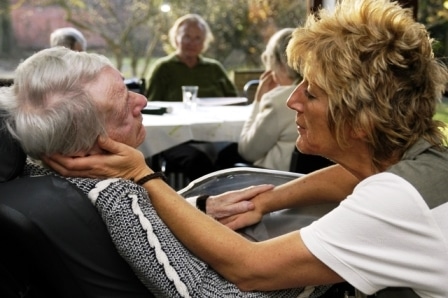
Systems to better accommodate work and care needs: care services, part-time and flexibility
The EQLS underlines that there seem to be less difficulties for combining employment and family responsibilities when there is an established practice of working part-time and adequate child and long-term care services, and if employees are given family-related flexibility. Interestingly, a growing part of older workers is also taking care of grandchildren, showing how intergenerational solidarity can improve work-life balance: 28% of men and 31% of women between 50 and 64 say they are caring for children or grandchildren. Also, the more people age, the more hours they dedicate to caring for family members.
Work-life balance measures a way to increase workers’ productivity
In the survey, almost one in five workers report having difficulties to concentrate at work because of family responsibilities – for older workers (50-64), this number is of 16% for men and 17% for women. For all age and gender groups, this number has significantly and constantly increased since 2007 — showing that policies to support work-life balance have a significant scope for increasing employees’ productivity and therefore to support companies.
Work and care: higher risks for carers
The EQLS shows that carers continue to face higher risks of unemployment, poverty and social exclusion, health and loneliness than people who are not providing informal care. However, it is noteworthy that while carers in employment are more likely to have a lower quality of life according to these factors, the difference between carers in employment and carers without employment is much larger – showing that employment is also a way to avoid social exclusion and negative impact on health of informal carers.
AGE Platform Europe is engaged towards stronger policies to reconcile work and family responsibilities, especially the provision of quality and affordable long-term care services and carers’ leave measures for employees with caring responsibilities. AGE continues to highlight that these policies are a necessity in the context of demographic change and believes they are crucial to increase gender equality and close the gender pension gap of currently almost 40 %. AGE therefore supports the recent Commission proposal for a directive on work-life balance for parents and carers.
More information:
- Eurofound, European Quality of Life Survey 2016
- AGE Platform Europe, The right to carers’ leave: a necessity in today’s context of demographic change
- AGE Platform Europe, Why do carers need support? Infographic after the European Quality of Life Survey 2016







